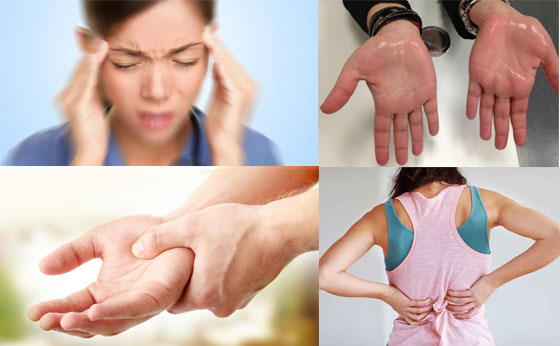QUEZON City, Philippines (January 7) – Admit it, us Pinoys have some unique beliefs which includes folk illnesses like “pasma” and “lamig”. Although there are no scientific findings yet and said afflictions are not generally recognized by contemporary medical science, still some Filipinos believed that they are real. Stories of its occurrence have been handed down from generation to generation. Many still believe that “pasma” and “lamig” are real, so are they?
“Pasma” is attributed to the interaction of hot and cold. In other words, it’s a “hot and cold imbalance.” For example, cold water is believed to be harmful to one’s health if one has been exposed to heat or has been in participating in vigorous work or activity that makes their body hot. Under certain conditions, the body’s muscles are said to be very “hot” and, therefore, they should not be abruptly brought into contact with “cold.” In this case, cold usually refers to cold water or an air-conditioned room.

It is said that a person is “pasmado” when he/she experiencing severe recurrent migraine, sweaty palms, numbness and pains, hand tremors, body pains and stomach pains, But, some correlation has been noted with diseases already recognized by contemporary medicine, for example, symptoms of “pasma” are similar to those found in people with diabetes mellitus and thyroid dysfunction. It has also been suggested that the complaints are often neurological in nature and may be linked to some kind of nervous system dysfunction.

There are reports of people who died suddenly and some becoming mentally ill due to “pasma”. Even though there are more reliable explanation of these cases, Filipinos still believe it was the main reason. These victims perhaps just had done something that will cause “pasma”, and encountered signs similar to “pasma”.
There are several beliefs regarding how to prevent or avoid “pasma”. These include avoiding tiresome, repetitive movements of the upper extremities, showering and bathing in the morning, and avoiding washing clothes after ironing. In short, just don’t go into water when you’re so tired or has been exposed to heat. Relax, and take an hour or so of rest before doing so. It’s the instant contact with the cold when your body’s been heated for so long that’s said to cause “pasma”.

Folkloric treatments for “pasma” include massages using ginger, coconut oil, alcohol, garlic, and camphor oil. Soaking in lukewarm salted water or rice water is also believed to cure “pasma”.
But despite all of these, let us remember that “pasma” is still not recognized by modern medical science, so instead of following traditions blindly, it will be better for us if we study the truth behind said traditions.
Reference:
http://hubpages.com/health/How-to-Avoid-Pasma
http://www.thebridgetoselfhealing.com/2012/05/lamig-and-pasma.html#sthash.tFDQcY8I.dpuf
http://philurbanlegends.blogspot.com/2013/05/is-pasma-real-or-just-myth-lately-we.html
(written by Mia Lydia Caragay, edited by Jay Paul Carlos, additional research by Vince Alvin Villarin)







